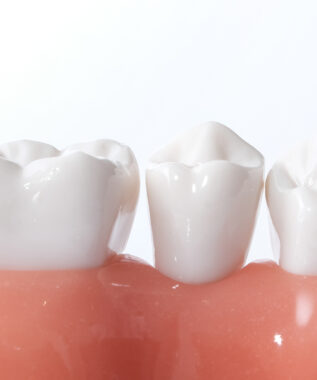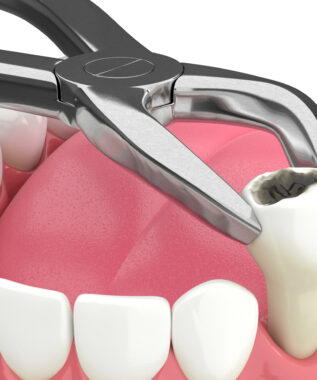 When it comes to taking good care of your teeth and oral health, much of the focus revolves around cleaning your teeth on a consistent basis. While consistently clean teeth are the basis of a healthy smile, your oral health relies on more than just your toothbrush and floss. The key to good preventive care is to keep your teeth strong and prevent oral bacteria from harming them, which also requires feeding them the nutrients they need and avoiding substances that can directly harm them. (more…)
When it comes to taking good care of your teeth and oral health, much of the focus revolves around cleaning your teeth on a consistent basis. While consistently clean teeth are the basis of a healthy smile, your oral health relies on more than just your toothbrush and floss. The key to good preventive care is to keep your teeth strong and prevent oral bacteria from harming them, which also requires feeding them the nutrients they need and avoiding substances that can directly harm them. (more…)
Lower Your Chances of Damaging a Tooth
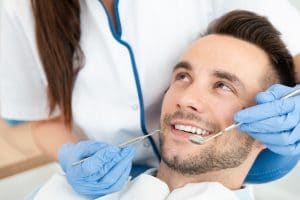 When you practice good dental hygiene on a regular basis, you’re improving your chances of avoiding things like tooth decay and gum disease. Such concerns arise from the excessive buildup of harmful oral bacteria, and preventing this buildup is the cornerstone of your good hygiene routine. However, not all oral health concerns are caused by plaque and tartar buildup. For instance, if your tooth becomes damaged due to something like excessive pressure, accidental trauma, or other reasons, then this damage can become one of the greatest threats to your tooth and long-term oral health. Fortunately, there are ways in which you can lower your risks of experiencing tooth damage and needing restorative treatment to fix it. (more…)
When you practice good dental hygiene on a regular basis, you’re improving your chances of avoiding things like tooth decay and gum disease. Such concerns arise from the excessive buildup of harmful oral bacteria, and preventing this buildup is the cornerstone of your good hygiene routine. However, not all oral health concerns are caused by plaque and tartar buildup. For instance, if your tooth becomes damaged due to something like excessive pressure, accidental trauma, or other reasons, then this damage can become one of the greatest threats to your tooth and long-term oral health. Fortunately, there are ways in which you can lower your risks of experiencing tooth damage and needing restorative treatment to fix it. (more…)
Better Ways to Keep Your Mouth Healthy
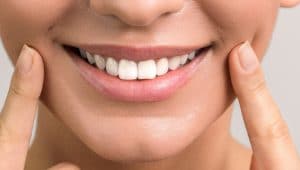 One of the best ways to stay on top of good overall health is keep your mouth consistently healthy and free of disease. In addition to the havoc that things like tooth decay and gum disease can wreak on your oral health, they can also impact your immune system’s ability to function properly in several important ways. Today, we examine the importance of keeping your mouth healthy and a few tips for how you can do it better every day. (more…)
One of the best ways to stay on top of good overall health is keep your mouth consistently healthy and free of disease. In addition to the havoc that things like tooth decay and gum disease can wreak on your oral health, they can also impact your immune system’s ability to function properly in several important ways. Today, we examine the importance of keeping your mouth healthy and a few tips for how you can do it better every day. (more…)
How Your Smile Benefits When Your Hygiene Is Good
 If you took careful stock of your dental hygiene practices every day, there’s a good chance that there’s room for improvement in at least one area. Perhaps you could pay more attention when you’re brushing and flossing your teeth, or use a little less force when you pass your toothbrush over your tooth enamel. You might also benefit from being more disciplined in your snacking habits throughout the day, and how reducing how often you expose your teeth to food and beverages. Today, we take a look at how sticking to a good hygiene routine can benefit your smile in several significant, long-term ways. (more…)
If you took careful stock of your dental hygiene practices every day, there’s a good chance that there’s room for improvement in at least one area. Perhaps you could pay more attention when you’re brushing and flossing your teeth, or use a little less force when you pass your toothbrush over your tooth enamel. You might also benefit from being more disciplined in your snacking habits throughout the day, and how reducing how often you expose your teeth to food and beverages. Today, we take a look at how sticking to a good hygiene routine can benefit your smile in several significant, long-term ways. (more…)
Why Treating Tooth Decay Isn’t One-Size-Fits-All
 Some of the most common dental treatments are similar for everyone. For instance, routine dental cleanings always involve carefully and thoroughly cleaning away plaque and tartar from your teeth. However, given the unique nature of everyone’s oral health, most dental treatments have to be customized to meet everyone’s specific needs. For example, if you develop tooth decay, then the extent of it and the most appropriate treatment for it can depend on a number of different factors. (more…)
Some of the most common dental treatments are similar for everyone. For instance, routine dental cleanings always involve carefully and thoroughly cleaning away plaque and tartar from your teeth. However, given the unique nature of everyone’s oral health, most dental treatments have to be customized to meet everyone’s specific needs. For example, if you develop tooth decay, then the extent of it and the most appropriate treatment for it can depend on a number of different factors. (more…)
The Keys to Successful Preventive Dental Care
 Preventive dental care is the most frequently performed type of dentistry, and for good reason. The best way to keep your smile healthy and beautiful on a consistent basis is to prevent any oral health concerns from developing. However, exactly what preventive dental care means isn’t always clear to everyone. In addition to visiting your dentist on a routine basis for checkups and cleanings, it also takes consistent effort on your part at home, by caring for your teeth and gums on a daily basis. (more…)
Preventive dental care is the most frequently performed type of dentistry, and for good reason. The best way to keep your smile healthy and beautiful on a consistent basis is to prevent any oral health concerns from developing. However, exactly what preventive dental care means isn’t always clear to everyone. In addition to visiting your dentist on a routine basis for checkups and cleanings, it also takes consistent effort on your part at home, by caring for your teeth and gums on a daily basis. (more…)
The Biggest Concerns About Gum Disease
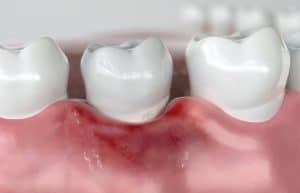 If it ever develops, gum disease can become a serious threat to the long-term health of your smile. In fact, the severe form of gum disease (known as periodontitis) is the most frequent reason behind adult tooth loss. However, gum disease doesn’t always seem that severe, especially when it first develops, which can fool may people into waiting to treat it and allowing it to cause more significant damage. Today, we examine some of the more important of these concerns, and why preventing or controlling gum disease is so important to your oral health. (more…)
If it ever develops, gum disease can become a serious threat to the long-term health of your smile. In fact, the severe form of gum disease (known as periodontitis) is the most frequent reason behind adult tooth loss. However, gum disease doesn’t always seem that severe, especially when it first develops, which can fool may people into waiting to treat it and allowing it to cause more significant damage. Today, we examine some of the more important of these concerns, and why preventing or controlling gum disease is so important to your oral health. (more…)
Fixing a Chipped Tooth with Cosmetic Tooth Bonding
 A healthy tooth can become damaged in a number of different ways, and the extent of that damage can vary greatly. For example, you might have a severe fracture in the tooth, or have a significant piece of the structure break off. In such cases, the need to treat and restore the tooth as soon as possible may be obvious. However, a tooth might just become slightly worn down or have a piece chip off of it. When tooth damage seems minor, like a chipped tooth, fixing the problem might not seem like such an immediate need. However, it can become much more severe if you wait long enough, which is why we often suggest fixing a chipped tooth as soon as possible. (more…)
A healthy tooth can become damaged in a number of different ways, and the extent of that damage can vary greatly. For example, you might have a severe fracture in the tooth, or have a significant piece of the structure break off. In such cases, the need to treat and restore the tooth as soon as possible may be obvious. However, a tooth might just become slightly worn down or have a piece chip off of it. When tooth damage seems minor, like a chipped tooth, fixing the problem might not seem like such an immediate need. However, it can become much more severe if you wait long enough, which is why we often suggest fixing a chipped tooth as soon as possible. (more…)
A Closer Look at Tooth Loss and Dental Implants
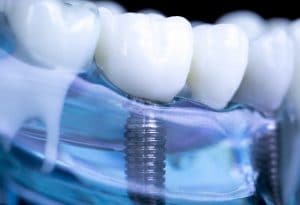 Tooth loss is a well-known concern, even for patients who still retain all of their healthy, natural teeth. For some people, it can seem like a problem they’ll have to deal with eventually. For others, it’s something they diligently try to avoid, hoping they never do. The good news is that tooth loss is largely preventable for most people, with the right, consistent care and maintenance. Yet, when it does occur, rebuilding your smile and restoring your oral health may be more complex than you realize. Today, we take a look at what tooth loss can mean for your smile, and why dental implants can offer the best solution for restoring and preserving it. (more…)
Tooth loss is a well-known concern, even for patients who still retain all of their healthy, natural teeth. For some people, it can seem like a problem they’ll have to deal with eventually. For others, it’s something they diligently try to avoid, hoping they never do. The good news is that tooth loss is largely preventable for most people, with the right, consistent care and maintenance. Yet, when it does occur, rebuilding your smile and restoring your oral health may be more complex than you realize. Today, we take a look at what tooth loss can mean for your smile, and why dental implants can offer the best solution for restoring and preserving it. (more…)
How to Prevent Tooth Loss, or Treat It Effectively
 Tooth loss isn’t a natural part of aging, but many people will have to deal with it to some degree during their lives. The good news is that, if you haven’t experienced tooth loss yet, you still may have a good chance at preventing it from ever occurring. If you’ve already lost one or more teeth, then there are steps you can take to successfully rebuild your smile and lower your risks of losing more teeth in the future. (more…)
Tooth loss isn’t a natural part of aging, but many people will have to deal with it to some degree during their lives. The good news is that, if you haven’t experienced tooth loss yet, you still may have a good chance at preventing it from ever occurring. If you’ve already lost one or more teeth, then there are steps you can take to successfully rebuild your smile and lower your risks of losing more teeth in the future. (more…)




